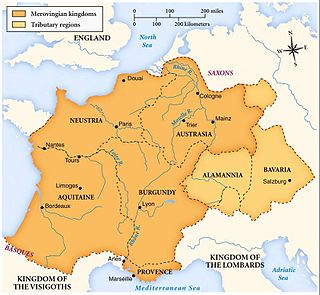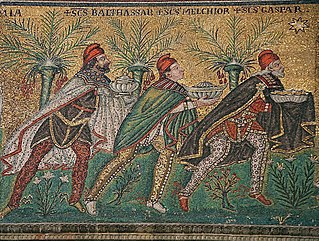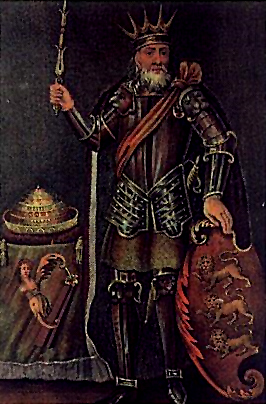The Book of Isaiah is the first of the Latter Prophets in the Hebrew Bible and the first of the Major Prophets in the Christian Old Testament. It is identified by a superscription as the words of the 8th-century BCE prophet Isaiah ben Amoz, but there is evidence that much of it was composed during the Babylonian captivity and later. Johann Christoph Döderlein suggested in 1775 that the book contained the works of two prophets separated by more than a century, and Bernhard Duhm originated the view, held as a consensus through most of the 20th century, that the book comprises three separate collections of oracles: Proto-Isaiah, containing the words of the 8th-century BCE prophet Isaiah; Deutero-Isaiah, or "the Book of Consolation",, the work of an anonymous 6th-century BCE author writing during the Exile; and Trito-Isaiah, composed after the return from Exile. Isaiah 1–33 promises judgment and restoration for Judah, Jerusalem and the nations, and chapters 34–66 presume that judgment has been pronounced and restoration follows soon. While few scholars today attribute the entire book, or even most of it, to one person, the book's essential unity has become a focus in more recent research.

In European Christianity, the divine right of kings, divine right, or God's mandation, is a political and religious doctrine of political legitimacy of a monarchy. It is also known as the divine-right theory of kingship.

Jonah or Jonas is a prophet in the Hebrew Bible, hailing from Gath-hepher in the Kingdom of Israel around the 8th century BCE. He is the central figure of the Book of Jonah, which details his reluctance in delivering the judgment of Yahweh to the city of Nineveh in Assyria. After he is swallowed by a large sea creature and then released, he returns to the divine mission.

The Merovingian dynasty was the ruling family of the Franks from around the middle of the 5th century until 751. They first appear as "Kings of the Franks" in the Roman army of northern Gaul. By 509 they had united all the Franks and northern Gallo-Romans under their rule. They conquered most of Gaul, defeating the Visigoths (507) and the Burgundians (534), and also extended their rule into Raetia (537). In Germania, the Alemanni, Bavarii and Saxons accepted their lordship. The Merovingian realm was the largest and most powerful of the states of western Europe following the breaking up of the empire of Theodoric the Great.

Northumbria was an early medieval Anglo-Saxon kingdom in what is now Northern England and south-east Scotland.

The Anglo-Saxons were a cultural group that inhabited much of what is now England in the Early Middle Ages, and spoke Old English. They traced their origins to Germanic settlers who came to Britain from mainland Europe in the 5th century. Although the details are not clear, their cultural identity developed out of the interaction of these settlers with the pre-existing Romano-British culture. Over time, most of the people of what is now southern, central, northern and eastern England came to identify as Anglo-Saxon and speak Old English. Danish and Norman invasions later changed the situation significantly, but their language and political structures are the direct predecessors of the medieval Kingdom of England, and the Middle English language. Although the modern English language owes somewhat less than 26% of its words to Old English, this includes the vast majority of words used in everyday speech.

Shah is a royal title that was historically used by the leading figures of Iranian monarchies. It was also used by a variety of Persianate societies, such as the Ottoman Empire, the Kazakh Khanate, the Khanate of Bukhara, the Emirate of Bukhara, the Mughal Empire, the Bengal Sultanate, historical Afghan dynasties, and among Gurkhas. Rather than regarding himself as simply a king of the concurrent dynasty, each Iranian ruler regarded himself as the Shahanshah or Padishah in the sense of a continuation of the original Persian Empire.

In Christianity, the Biblical Magi, also known as the Three Wise Men, Three Kings, and Three Magi, are distinguished foreigners who visit Jesus after his birth, bearing gifts of gold, frankincense, and myrrh in homage to his birth. As such, the Magi are commemorated on the feast day of Epiphany—sometimes called "Three Kings Day"—and commonly appear in the nativity celebrations of Christmas.
The Queen of Sheba is a figure first mentioned in the Hebrew Bible. In the original story, she brings a caravan of valuable gifts for the Israelite King Solomon. This account has undergone extensive Jewish, Islamic, Yemenite and Ethiopian elaborations, and it has become the subject of one of the most widespread and fertile cycles of legends in Asia and Africa.

A king cake, also known as a three kings cake, is a cake associated in many countries with Epiphany. Its form and ingredients are variable, but in most cases a fève such as a figurine, often said to represent the Christ Child, is hidden inside. After the cake is cut, whoever gets the fève wins a prize. Modern fèves can be made of other materials, and can represent various objects and people.

The Adoration of the Magi or Adoration of the Kings or Visitation of the Wise Men is the name traditionally given to the subject in the Nativity of Jesus in art in which the three Magi, represented as kings, especially in the West, having found Jesus by following a star, lay before him gifts of gold, frankincense, and myrrh, and worship him. It is related in the Bible by Matthew 2:11: "On entering the house, they saw the child with Mary his mother; and they knelt down and paid him homage. Then, opening their treasure chests, they offered him gifts of gold, frankincense, and myrrh. And having been warned in a dream not to return to Herod, they left for their own country by another path".

Lebor Gabála Érenn, Modern Irish spelling: Leabhar Gabhála Éireann) known in English as The Book of Invasions, is a collection of poems and prose narratives in the Irish language intended to be a history of Ireland and the Irish from the creation of the world to the Middle Ages. There are a number of versions, the earliest of which was compiled by an anonymous writer in the 11th century. It synthesised narratives that had been developing over the foregoing centuries. The Lebor Gabála tells of Ireland being settled six times by six groups of people: the people of Cessair, the people of Partholón, the people of Nemed, the Fir Bolg, the Tuatha Dé Danann, and the Milesians. The first four groups are wiped out or forced to abandon the island; the fifth group represents Ireland's pagan gods, while the final group represents the Irish people.

High King of Ireland was a royal title in Gaelic Ireland held by those who had, or who are claimed to have had, lordship over all of Ireland. The title was held by historical kings and was later sometimes assigned anachronously or to legendary figures.

Epiphany, or Eid al-Ghitas, also known as "Theophany" in Eastern Christian tradition, is a Christian feast day commemorating the visit of the Magi, the baptism of Jesus, and the wedding at Cana.

Abune Tekle Haymanot was an Ethiopian saint and monk mostly venerated as a hermit. He was the Abuna of Ethiopia who founded a major monastery in his native province of Shewa. He is significant for being the only Ethiopian saint popular both amongst Ethiopians and outside that country. Tekle Haymanot "is the only Ethiopian saint celebrated officially in foreign churches such as Rome and Egypt." His feast day is 30 August, and the 24th day of every month in the Ethiopian calendar is dedicated to Tekle Haymanot.

The Viking revival was a movement reflecting new interest in, and appreciation for Viking medieval history and culture. Interest was reawakened in the late 18th and 19th centuries, often with added heroic overtones typical of that Romantic era.
The non-canonical books referenced in the Bible includes non-Biblical cultures and lost works of known or unknown status. By the "Bible" is meant those books recognized by Christians and Jews as being part of Old Testament as well as those recognized by most Christians as being part of the Biblical apocrypha or of the Deuterocanon.

The name Stephen, long popular among South Slavic monarchs, was used as an honorific or as a royal title by various rulers of Serbia and claimants to the Serbian throne, most notably the Nemanjić kings of Serbia and the Kotromanić kings of Bosnia.

The term Norman–Arab–Byzantine culture, Norman–Sicilian culture or, less inclusively, Norman–Arab culture, refers to the interaction of the Norman, Byzantine Greek, Latin, and Arab cultures following the Norman conquest of the former Emirate of Sicily and North Africa from 1061 to around 1250. The civilization resulted from numerous exchanges in the cultural and scientific fields, based on the tolerance shown by the Normans towards the Latin- and Greek-speaking Christian populations and the former Arab Muslim settlers. As a result, Sicily under the Normans became a crossroad for the interaction between the Norman and Latin Catholic, Byzantine–Orthodox, and Arab–Islamic cultures.
Christian electronic dance music, also known as CEDM, Christian EDM, Christian dance music, CDM, or Christian electronic music is a genre of electronic dance music and Christian music. Its musical styles closely mirror non-Christian EDM; however, the CEDM culture's lack of drug use and emphasis on positive lyrics distinguish it from non-religious counterparts. EDM.com wrote "the [CEDM] culture can feel quite welcoming." Many live concerts and events have been held in Christian churches in addition to traditional venues such as Lumination, Creation Festival and LifeLight Music Festival. CEDM has also been incorporated into some Christian worship routines.